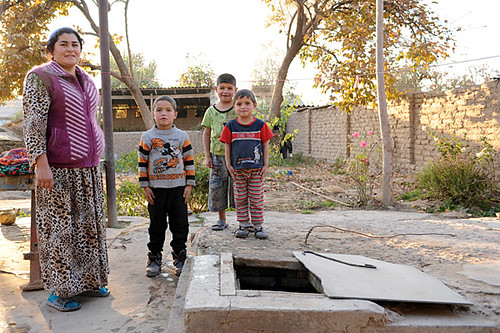A Whole House Particulate Water Filter Can Remove Sediment & Dirt From Your Water System

The next time you fill up a glass of water, lift it up to the light and take a look to see if it may be the time for you to purchase a whole house particulate water filter. If there are little specks floating around in your glass or the contents look cloudy, you need to consider an H20 treatment system.
"Particulate" refers to the small particles that end up in your H20, usually in the form of sediment, such as bits of rock and dirt. While there are many chemicals and molecularly small elements that can be caught by a water filter particulate objects are generally larger. An H20 purifier system dealing with these larger elements focuses more on what you can actually see when you look in your glass, not what you cannot see.
A whole house particulate water filter is an important part of your plumbing for several reasons. Sediment can contain up to five different types of contaminants by the time it reaches your faucet, and these elements can be hazardous to your health. Drinking something that contains sediment or other small particles is not safe.
Sediment is also not good for your plumbing in general. It clogs up plumbing, can make toilets run, and can build up inside your H20 tank and cause problems. After being run through a water filter particulate objects are then stopped from causing damage to your house.
While there are many smaller H20 treatment units such as carafe-style pitchers or sink models, one of the benefits of a whole house particulate water filter is that it treats everything that flows in from your water main. As stated previously, sediment can damage your plumbing. Removing this element at the entry point ensures that you will spend less time and money maintaining your piping system.
In the best type of water filter particulate objects are stopped via a multi-step procedure. People who have used cheap, one-strainer H20 purifiers know that usually some carbon from the unit ends up in the "clean" H20 chamber, thus actually adding particles to the drinking liquid. Better quality systems have multiple strainers which catch all sediment and ensure that no stray particle ends up in the drinking supply.
A whole house particulate water filter generally is the first step in a multi-unit H20 processing system. Sediment is molecularly larger than chlorine and other chemicals found in publicly treated H20, and generally in a good water filter particulate objects are the first ones stopped. However, the H20 must pass through additional, finer graded strainers and any sediment that escapes the first strainer will be caught by the second one.
If you want to keep your family from accidentally drinking contaminants and would like your plumbing to remain free of problems, a whole house particulate water filter can help you accomplish this. By removing all sediment and other bits of visible contaminants from your H20, you are cutting down on your plumbing bills and giving your family a safe substance for drinking and bathing in.
No comments:
Post a Comment